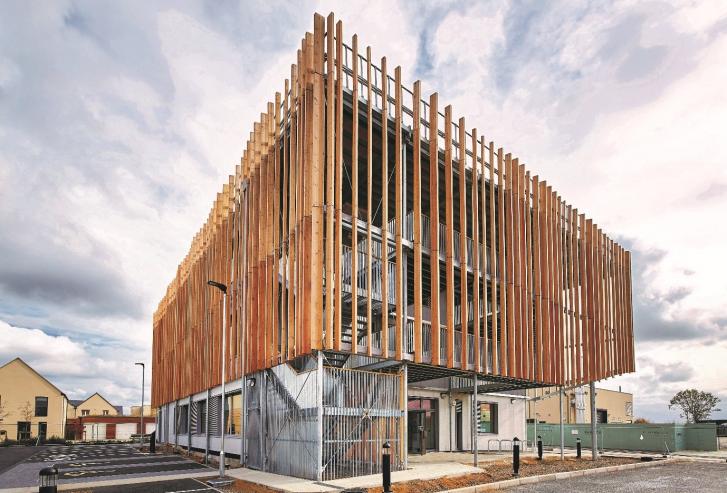
In the lead-up to this autumn's COP26 event in Glasgow, through our 'Oxfordshire gears-up for COP26' series, we will be showcasing the many examples of how Oxfordshire’s immense energy expertise is being applied to exploring the boundaries of future energy and, ultimately, a drive towards a zero-carbon future:
CASE STUDY: The Eco Business Centre, North West Bicester
Balancing principles of both environment and people-friendly design, the Eco Business Centre is contributing to a greener Oxfordshire. Since it opened in September 2019, the building has acted as a hub for local businesses and home-workers, forming part of North West Bicester eco-town (a landmark eco-housing development, the first of its kind in the UK). It also happens to be the first non-residential building in the UK to achieve the Passivhaus Plus standard.
A collaborative effort between Architype and Kier, the Eco Business Centre was always envisioned as a zero-carbon building, built to rigorous environmental standards. It was designed to achieve a BREEAM Excellent rating, placing it in the top 10% of UK buildings for sustainability. Yet it was not until after outline planning had already been granted that the designers realised it had the potential to achieve Passivhaus Plus status, signifying a building that produces as much energy as its occupiers consume.
A standard Passivhaus structure must not exceed 60 kWh/(m²a) of renewable primary energy use: the Plus limit is 45 kWh/(m²a).
Lucy Wendon, Community Manager, Town Square said: “The Eco Business Centre has created incredible value for Bicester residents and businesses. Its design is entirely eco-friendly without compromise to comfort; in fact, every feature - from the sunlit open plan atrium, to the attractive and accessible location - promotes physical, mental and social wellbeing alongside the obvious environmental benefits.”
The eco-friendly elements that helped the Eco Business Centre achieve Passivhaus Plus status include:
- hybrid timber-concrete structure and recycled newspaper insulation
- natural, non-toxic building materials
- breathable walls and thermally efficient windows
- exceptional use of natural light, with 24 triple-glazed rooflights
- vertical exterior timber fins to prevent solar heat gain
- photovoltaic panels covering roof
- heat-generation via gas-powered turbine.
The Eco Business Centre sits beside 393 zero-carbon homes in Elmsbrook – the first phase in the eco-community of North West Bicester, where shared spaces and amenities are interspersed amongst sustainably-built housing to deliver a village feel. Alongside other neighbourhood amenities, the shared workspace adds significant value to residents’ lives, and to Elmsbrook’s One Planet Living status –
Bioregional’s holistic vision of sustainable, happy, healthy living. The Centre is now operated by Perch/Town Square Spaces, offering flexible working space and meeting rooms for up to 125 people.
Not only is the building itself sustainable, but facilities such as bike racks and car clubs encourage and enable its visitors to adapt more eco-friendly habits – helping Bicester to meet its commitments to the health of environment and community, as an ambitious and thriving Garden Town.
The 26th UN Climate Change Conference of the Parties (or 'COP26') takes place in Glasgow this November. The summit brings parties together to accelerate action towards the goals of the Paris Agreement and the UN Framework Convention on Climate Change.
In Oxfordshire, the low carbon energy sector generates £1.15bn a year. Over the past half-decade, the county has attracted £2bn in foreign direct investment. Oxfordshire’s Energy Strategy for zero-carbon growth by 2050 will help to spearhead a further £1.35bn annually to our economy, creating at least 11,000 new jobs in the low-carbon sector by 2030.
Find out more on the Eco Business Centre




